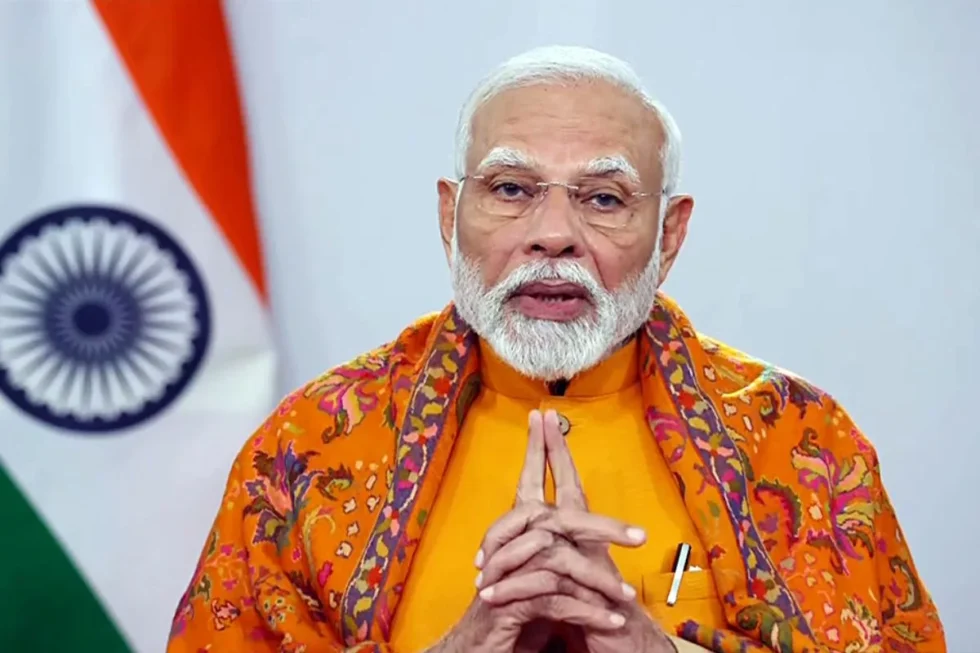
Prime Minister Narendra Modi on Tuesday said that Swahid Diwas is an occasion to remember the extraordinary valour and sacrifices of those who dedicated their lives to the Assam Movement. The Prime Minister said on social media that their resolve helped Assam preserve its “unique culture and identity”.
PM Modi wrote in a post, “Swahid Diwas is an occasion to remember the extraordinary courage and sacrifices of those who dedicated themselves to the Assam Movement.
“Their unwavering resolve and selfless efforts helped preserve Assam’s unique culture and identity. Their valour also inspires us all to continue working towards a developed Assam,” the post added.
What Himanta Biswa Sarma said?
Acknowledging PM Modi’s remark, Assam Chief Minister Himanta Biswa Sarma wrote on X, “Indeed Hon’ble Prime Minister. The #SwahidDiwas is a solemn occasion to remember the stellar contributions of the martyrs of the Assam Movement in protecting the honour of Jati, Mati, Bheti. With your support several objectives of the movement is getting fulfilled by our Govt.”
Sarma, on the occasion, visited Jamugurihat to attend the Swahid Diwas programme organised by the Bharatiya Janata Yuva Morcha (BJYM). Addressing a gathering in Pakamura Pathar, he urged the youth to work towards transforming Assam’s economy. “While the political objective of the Assam Agitation was to expel foreigners from the state, its economic aim was to secure Assam’s self-sufficiency,” the Chief Minister said.
He urged the youth of the state to actively engage in sectors like agriculture, industry, and transport to lead Assam toward economic independence. “The youth must work towards self-sufficiency, whether in agriculture or industry. The movement for economic freedom must start now,” the Chief Minister emphasized, stressing that it was time for the youth to put in the effort, just as the martyrs had sacrificed their lives for the state’s cause.
“If the martyrs gave their blood for the land, we must give our sweat. Let us be inspired by their sacrifices and work tirelessly to build our state,” Sarma further said.
Sarbananda Sonowal observes Swahid Diwas
Meanwhile, Union Minister and former Assam CM Sarbananda Sonowal paid tribute to those who lost their lives during the Assam Movement. “From 1979 to 1985, the people of Assam fought against infiltrators. I honor all those who gave their lives for their country during the Assam Movement. It is because of their sacrifices that I stand here today as a minister. We must continue the fight against foreign infiltration and ensure India’s security. Today, Assam stands as a crucial hub in the Northeast,” he told ANI.
In a post on social media platform X, Sonowal highlighted that the Assam Movement was a key struggle to safeguard Assamese identity. “The Assam Movement was a pivotal struggle for protecting the Assamese identity and an integral part of India’s modern history. On the martyrdom day of the movement’s first martyr, Khargeswar Talukdar, I offer my heartfelt tributes to all the martyrs. Their sacrifice continues to inspire us,” he wrote.
Swahid Diwas, observed annually on December 10, honors the martyrs who sacrificed their lives during the Assam Movement. On this day in 1979, Swahid Khargeswar Talukdar became the first martyr of the Assam Movement. The Assam Movement was a political and social movement in Assam that began in the late 1970s and lasted through the mid-1980s. It was primarily led by the All Assam Students’ Union (AASU) and focused on demanding the identification and deportation of illegal immigrants, particularly those from Bangladesh.
The movement was driven by concerns over the demographic, cultural, and economic impacts of immigration on the indigenous Assamese population. The protests escalated into violent clashes, with significant unrest between the state government and the agitators. The movement culminated in the Assam Accord of 1985, which sought to resolve the issue of illegal immigration by setting specific timelines for identifying and disenfranchising foreign nationals. The movement had lasting effects on the region’s politics and identity, shaping Assamese nationalism and state policies.
It concluded in 1985 with the signing of the Assam Accord by then Prime Minister Rajiv Gandhi, which outlined measures to detect illegal foreigners and ensured constitutional, legislative, and administrative safeguards to protect and promote the cultural, social, and linguistic identity of the Assamese people.







